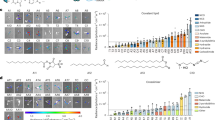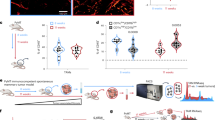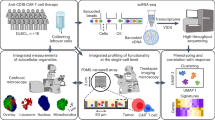Abstract
Multi-drug resistance can be induced by various environmental stresses including an exposure to chemical drugs and X-ray irradiation. In addition, hypo-nutritive conditions are known to promote multi-drug resistance in solid tumours. To understand the importance of nutritive conditions in the development of drug resistance in non-solid tumours and to know whether a transient malnutrition could induce a permanent reduction in drug sensitivity, leukaemic cells were transiently cultured under growth factor-starved conditions. Granulocyte-macrophage colony-stimulating factor-dependent human leukaemic MO7e cells were cultured in the absence of granulocyte-macrophage colon-stimulating factor for 2 weeks, during which the majority of the cells died, and the minor viable cells were expanded in the presence of granulocyte-macrophage colon-stimulating factor for following 1 week. This procedure was repeated three times, and the surviving cells were cloned by limiting dilution. These clones underwent G1 arrest in the absence of granulocyte-macrophage colon-stimulating factor, while parental cells underwent apoptosis. Interestingly, activities of the downstream targets of granulocyte-macrophage colon-stimulating factor receptor were regulated in a granulocyte-macrophage colon-stimulating factor-independent manner, indicating that the ligand-independent activation of granulocyte-macrophage colon-stimulating factor receptor had not taken place. Moreover, the 4–7-fold increases in IC50 for etoposide and the 2–6-fold increase in IC90 for doxorubicin was observed. Furthermore, Bcl-2 protein expression was significantly up-regulated in the clones while no significant changes in Bax, Bcl-xL, P-glycoprotein and Hsp70 protein expression and no consistent changes in p53 expression were detected. We propose that recurrent growth factor starvation, which may occur in vivo when stromal function is damaged after intensive chemotherapy or bone marrow occupation by malignant cells, causes selection of drug resistant leukaemia cells that will expand when the growth factor supply recovers.
This is a preview of subscription content, access via your institution
Access options
Subscribe to this journal
Receive 24 print issues and online access
$259.00 per year
only $10.79 per issue
Buy this article
- Purchase on Springer Link
- Instant access to full article PDF
Prices may be subject to local taxes which are calculated during checkout







Similar content being viewed by others
References
Aas T, Borresen AL, Geisler S, Smith-Sorensen B, Johnsen H, Varhaug JE, Akslen LA, Lonning PE (1996) Specific P53 mutations are associated with de novo resistance to doxorubicin in breast cancer patients. Nat Med 2: 811–814
Avanzi GC, Brizzi MF, Giannotti J, Ciarletta A, Yang YC, Pegoraro L, Clark SC (1990) M-07e human leukaemic factor-dependent cell line provides a rapid and sensitive bioassay for the human cytokines GM-CSF and IL-3. J Cell Physiol 145: 458–464
Aydiner A, Koyuncu H, Tas F, Topuz E, Disci R (2000) Crossover clinical study comparing the pharmacokinetics of etoposide (75 mg) administered as 25-mg capsules three times a day versus once a day. Int J Clin Pharmacol Res 20: 21–30
Battista R, Bassan R, D'Emilio A, Dragone P, Viero P, Dini E, Barbui T (1991) Short-term remission induction and consolidation therapy for adult acute myelogenous leukaemia. Hematol Oncol 9: 43–52
Ben-Ishay Z, Prindull G, Yankelev S, Sharon S (1990) Cumulative bone marrow stromal damage caused by X-irradiation and cytosine-arabinoside in mice. Med Oncol Tumor Pharmacother 7: 55–59
Benn PA, Perle MA (1992) Chromosomal staining and banding. In Human Cytogenetics. Oxford Press, Oxford, U.K: 91
Costello RT, Mallet F, Gaugler B, Sainty D, Arnoulet C, Gastaut JA, Olive D (2000) Human acute myeloid leukaemia CD34+/CD38-progenitor cells have decreased sensitivity to chemotherapy and Fas-induced apoptosis, reduced immunogenicity, and impaired dendritic cell transformation capacities. Cancer Res 60: 4403–4411
Cotter TG, Glynn JM, Echeverri F, Green DR (1992) The induction of apoptosis by chemotherapeutic agents occurs in all phases of the cell cycle. Anticancer Res 12: 773–779
Hockel M, Schlenger K, Aral B, Mitze M, Schaffer U, Vaupel P (1996) Association between tumour hypoxia and malignant progression in advanced cancer of the uterine cervix. Cancer Res 56: 4509–4515
Hughes CS, Shen JW, Subjeck JR (1989) Resistance to etoposide induced by three glucose-regulated stresses in Chinese hamster ovary cells. Cancer Res 49: 4452–4454
Ju JF, Banerjee D, Lenz HJ, Danenberg KD, Schmittgen TC, Spears CP, Schonthal AH, Manno DJ, Hochhauser D, Bertino JR, Danenberg PV (1998) Restoration of wild-type p53 activity in p53-null HL-60 cells confers multidrug sensitivity. Clin Cancer Res 4: 1315–1322
Karakas T, Maurer U, Weidmann E, Miething CC, Hoelzer D, Bergmann L (1998) High expression of bcl-2 mRNA as a determinant of poor prognosis in acute myeloid leukaemia. Ann Oncol 9: 159–165
Lee AS (1992) Mammalian stress response: induction of the glucose-regulated protein family. Curr Opin Cell Biol 4: 267–273
Licht T, Fiebig HH, Bross KJ, Herrmann F, Berger DP, Shoemaker R, Mertelsmann R (1991) Induction of multiple-drug resistance during anti-neoplastic chemotherapy in vitro. Int J Cancer 49: 630–637
Ohashi M, Iwase M, Nagumo M (2000) Changes in susceptibility to Fas-mediated apoptosis during differentiation of HL-60 cells. J Leukoc Biol 67: 374–380
Okuma E, Saeki K, Shimura M, Ishizaka Y, Yasugi E, Yuo A (2000) Induction of apoptosis in human hematopoietic U937 cells by granulocyte-macrophage colony-stimulating factor: possible existence of caspase 3-like pathway. Leukaemia 14: 612–619
Reed JC (1997) Bcl-2 family proteins: regulators of apoptosis and chemoresistance in hematologic malignancies. Semin Hematol 34: 4 Suppl 5 9–19
Ross DD (2000) Novel mechanisms of drug resistance in leukaemia. Leukaemia 14: 467–473
Saeki K, Yuo A, Kato M, Miyazono K, Yazaki Y, Takaku F (1997) Cell density-dependent apoptosis in HL-60 cells, which is mediated by an unknown soluble factor, is inhibited by transforming growth factor β1 and overexpression of Bcl-2. J Biol Chem 272: 20003–20010
Saeki K, Yuo A, Okuma E, Yazaki Y, Susin SA, Kroemer G, Takaku F (2000) Bcl-2 down-regulation causes autophagy in a caspase-independent manner in human leukaemic HL60 cells. Cell Death Differ 12: 1263–1269
Shen J, Hughes C, Chao C, Cai J, Bartels C, Gessner T, Subjeck J (1987) Coinduction of glucose-regulated proteins and doxorubicin resistance in Chinese hamster cells. Proc Natl Acad Sci USA 84: 3278–3282
Shen JW, Subjeck JR, Lock RB, Ross WE (1989) Depletion of topoisomerase II in isolated nuclei during a glucose-regulated stress response. Mol Cell Biol 9: 3284–3292
Shimura M, Osawa Y, Yuo A, Hatake K, Takaku F, Ishizaka Y (2000) Oxidative stress as a necessary factor in room temperature-induced apoptosis of HL-60 cells. J Leukoc Biol 68: 87–96
Tannock IF, Lee C (2001) Evidence against apoptosis as a major mechanism for reproductive cell death following treatment of cell lines with anti-cancer drugs. Br J Cancer 84: 100–105
Tomida A, Yun J, Tsuruo T (1996) Glucose-regulated stresses induce resistance to camptothecin in human cancer cells. Int J Cancer 68: 391–396
Yun J, Tomida A, Nagata K, Tsuruo T (1995) Glucose-regulated stresses confer resistance to VP-16 in human cancer cells through a decreased expression of DNA topoisomerase II. Oncol Res 7: 583–590
Zhang K, Mack P, Wong KP (1998) Glutathione-related mechanisms in cellular resistance to anticancer drugs. Int J Oncol 12: 871–882
Acknowledgements
This work was partially supported by a Grant-in-Aid for the Second Term Comprehensive 10-year Strategy for Cancer Control from the Ministry of Health and Welfare, Japan.
Author information
Authors and Affiliations
Corresponding author
Rights and permissions
About this article
Cite this article
Saeki, K., Okuma, E. & Yuo, A. Recurrent growth factor starvation promotes drug resistance in human leukaemic cells. Br J Cancer 86, 292–300 (2002). https://doi.org/10.1038/sj.bjc.6600036
Received:
Revised:
Accepted:
Published:
Issue Date:
DOI: https://doi.org/10.1038/sj.bjc.6600036
Keywords
This article is cited by
-
An mTORC1/2 dual inhibitor, AZD2014, acts as a lysosomal function activator and enhances gemtuzumab ozogamicin-induced apoptosis in primary human leukemia cells
International Journal of Hematology (2019)



